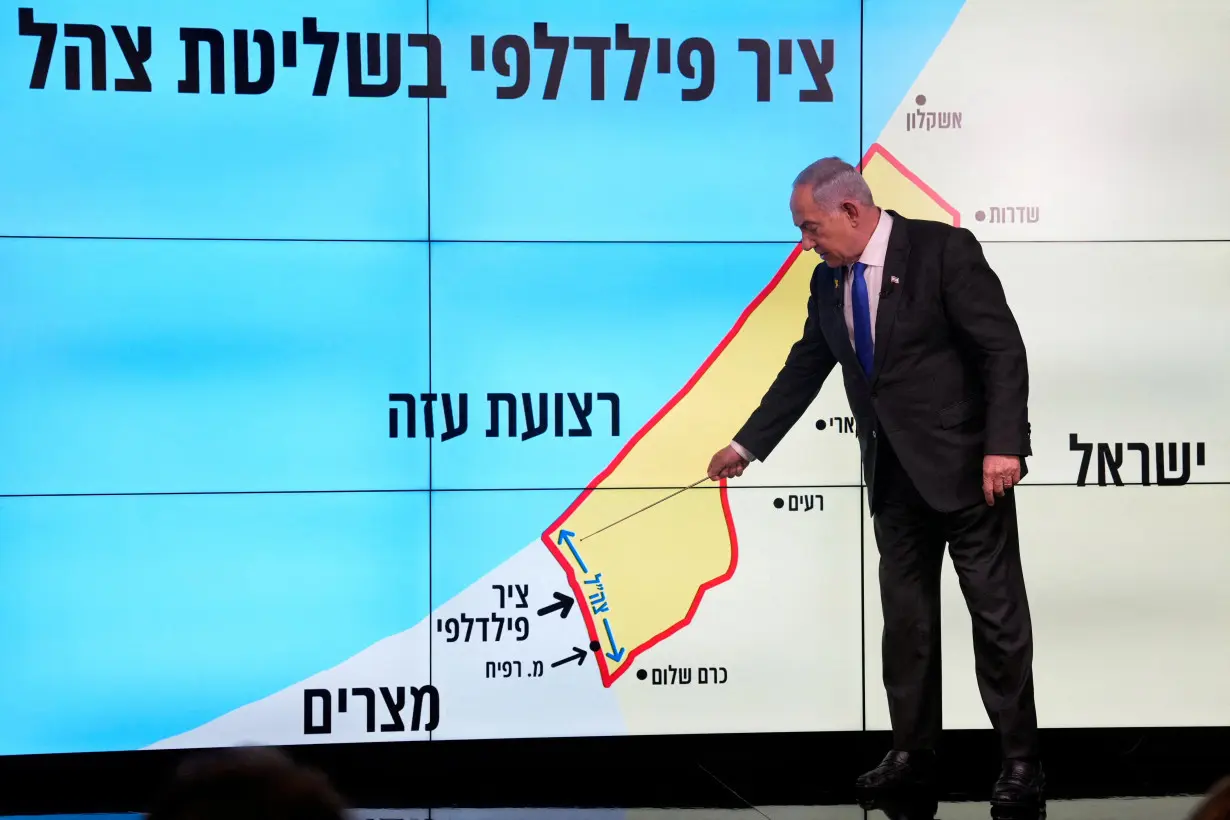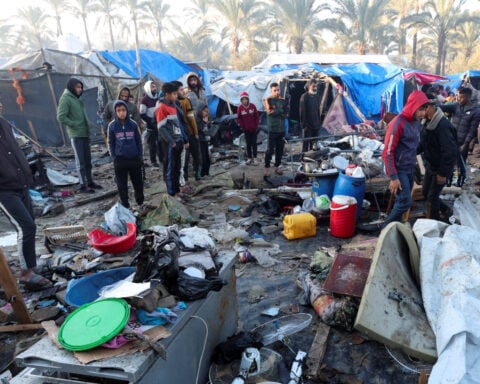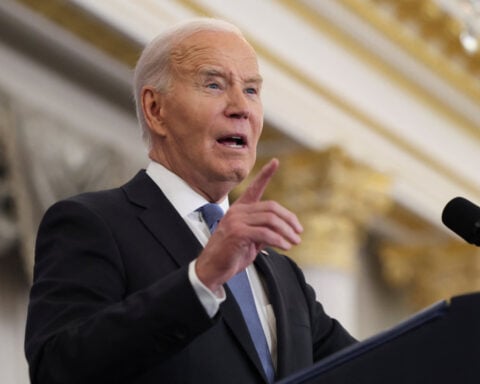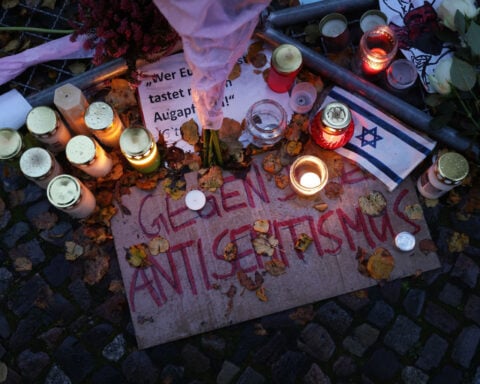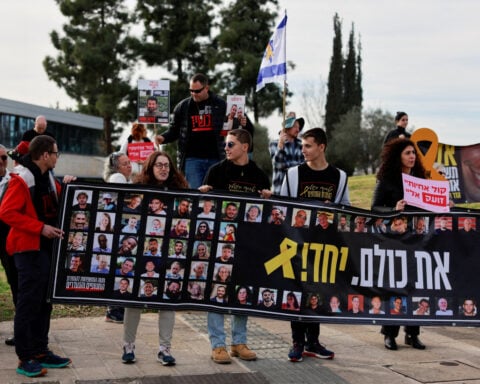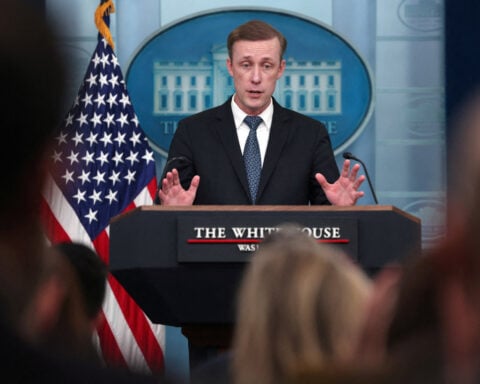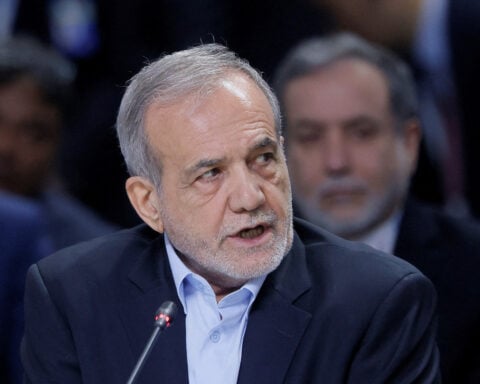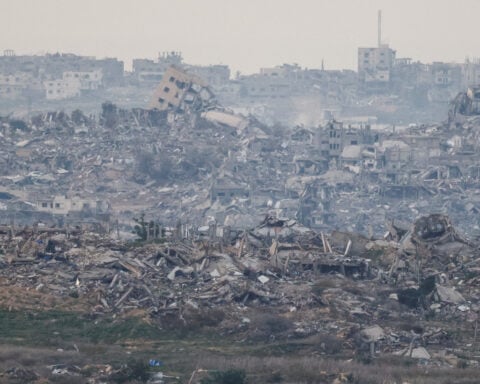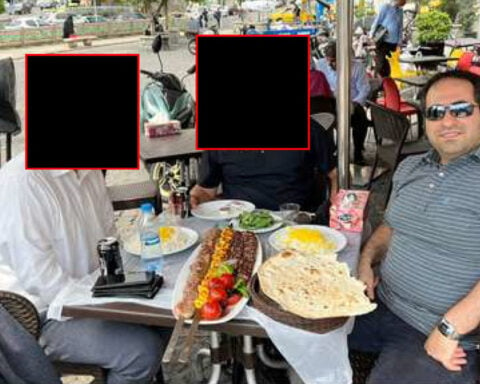(Reuters) - The status of a narrow stretch of land known as the Philadelphi corridor on Gaza's border with Egypt has emerged as a stumbling block in efforts to secure a deal for a ceasefire between Israel and Hamas after 11 months of war.
Israeli Prime Minister Benjamin Netanyahu says Israel needs to keep forces in the corridor to prevent it from becoming a lifeline for Hamas to smuggle weapons into Gaza.
But Egypt says Israel must pull out, and Hamas is demanding an Israeli withdrawal from the whole of Gaza. Here are some facts about the corridor.
WHAT IS THE PHILADEPHI CORRIDOR?
The corridor is a strip about 14km (9 miles) long, running from the Mediterranean sea at its north-western end to near the Israeli-controlled Kerem Shalom crossing at its south-eastern end.
Israel gave it the code name Philadelphi, while the Palestinians and Egypt commonly call it the Salah al-Din route or axis.
Securing the border has long been a concern for Israel. Before it withdrew forces and settlers from Gaza in 2005, attacks on Israeli soldiers patrolling the corridor were common.
As part of the pull-out, Israel signed an agreement with Egypt which allowed for a 750-strong Egyptian border guard that was meant to tackle smuggling and militancy on the border. Control of the Gazan side passed to the Palestinian Authority until Hamas took over Gaza in 2007.
WHO CONTROLS IT AND WHAT DOES ISRAEL WANT?
Israel seized control of the Philadelphi corridor in May as part of its advance into Rafah, in southern Gaza.
It says it needs to secure the corridor because Hamas used tunnels linking Gaza with Egypt's Sinai Peninsula to smuggle weapons and banned material.
Long after Israel withdrew from Gaza, a large network of tunnels remained in use. In May, an Israeli delegate at the International Court of Justice said about 50 such tunnels had been identified in Rafah after the entry of Israeli forces.
Egypt says it destroyed the tunnel network from its side of the border as it began to push back against an Islamist insurgency in northern Sinai almost a decade ago, and that it later created a buffer zone and border fortifications that prevent smuggling.
WHY IS THE CORRIDOR IMPORTANT FOR PALESTINIANS?
Since Hamas took over Gaza, Israel along with Egypt enforced a blockade on the territory.
That included tightly controlling movement through the Rafah crossing, which is located on the Philadelphi corridor and was the only crossing on Gaza's borders not directly controlled by Israel.
Despite the restrictions, it remained a lifeline for Palestinians, allowing those with security approval to leave and re-enter the territory and serving as a gateway for trade.
After the outbreak of war on Oct. 7 last year the Rafah crossing became the main entry point for humanitarian aid and an evacuation route for those in serious need of medical treatment.
Israel's advance in May resulted in the closure of the crossing, sharply reducing aid deliveries and medical evacuations.
WHAT'S EGYPT'S POSITION?
Egypt says the corridor is guaranteed by its 1979 peace treaty with Israel, that Israel must withdraw, and that a Palestinian presence at Rafah should be restored.
The Israeli advance deprived Egypt of its role brokering access over the border, a position that had given Cairo leverage over Hamas.
Security at the border is highly sensitive for Egypt because of its history of conflict with Israel, fears that Israel's military offensive could create a breach of the border and push large numbers of Palestinians into Sinai, and the risk of militancy.
While Egypt has developed extensive contacts with Hamas, the Palestinian Islamist movement is an offshoot of the Muslim Brotherhood, which was banned in Egypt after then-army chief Abdel Fattah al-Sisi led the 2013 overthrow of its democratically elected president, Mohamed Mursi.
Early in the current conflict, Sisi raised the prospect of Sinai becoming a base for attacks against Israel if Palestinians were forced across the border en masse.
WHY IS THE CORRIDOR A FOCUS OF CEASEFIRE TALKS?
Israel's desire to keep troops deployed in the Philadelphi corridor and the Netzarim corridor, which cuts across the Gaza Strip south of Gaza City, have recently emerged as sticking points in ceasefire talks.
Over months of negotiations Hamas's core demands have been a guarantee of a permanent ceasefire and a full withdrawal of Israeli forces from Gaza. The group wants Palestinians, many of whom were displaced from northern to southern Gaza, to be able to move through Netzarim from the first phase of any ceasefire deal.
It has accused Netanyahu of raising new demands as a pretext for continuing the war.
Egypt is a mediator in ceasefire talks together with the United States and Qatar, and has reacted angrily to Israeli suggestions that its border with Gaza is not secure.
Negotiators have discussed surveillance systems that could allow Israel to pull back its troops if a ceasefire was agreed. There has also been discussion of deploying international monitors at the border.
Netanyahu has rejected a withdrawal from the corridor in the first phase of a ceasefire deal. Israel would only agree to a permanent ceasefire after that with guarantees the corridor would be secured, he said.
(Compiled by Aidan Lewis; Editing by Alex Richardson)

 Japan's Makino Milling requests changes to unsolicited bid from Nidec
Japan's Makino Milling requests changes to unsolicited bid from Nidec
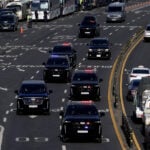 South Korea's Yoon likely to be held in a solitary cell
South Korea's Yoon likely to be held in a solitary cell
 Michigan Gov. Gretchen Whitmer, a potential 2028 candidate, wants to find common ground with Trump
Michigan Gov. Gretchen Whitmer, a potential 2028 candidate, wants to find common ground with Trump
 Trump's Greenland bid stirs debate in China about what to do with Taiwan
Trump's Greenland bid stirs debate in China about what to do with Taiwan
 Inflation duo takes centre stage
Inflation duo takes centre stage
 Manatees congregate in warm waters near power plants as US winter storms graze Florida
Manatees congregate in warm waters near power plants as US winter storms graze Florida
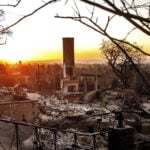 As Los Angeles burns, Hollywood's Oscar season turns into a pledge drive
As Los Angeles burns, Hollywood's Oscar season turns into a pledge drive
 As fires ravage Los Angeles, Tiger Woods isn't sure what will happen with Riviera tournament
As fires ravage Los Angeles, Tiger Woods isn't sure what will happen with Riviera tournament
 Antetokounmpo gets 50th career triple-double as Bucks win 130-115 to end Kings' 7-game win streak
Antetokounmpo gets 50th career triple-double as Bucks win 130-115 to end Kings' 7-game win streak
